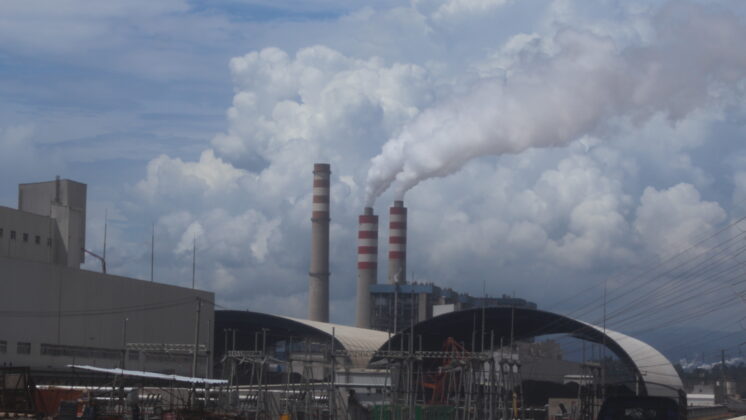Verité has examined the role of labor brokers in supply chain production. There is no industry more dynamic and global than that of electrical and electronics manufacturing, and thus it served as an excellent sector of focus. The industry is typified by intense competition among manufacturers and tight interdependencies among the various countries and locales where product design, assembly, and manufacture take place. Verité’s research took place in Taiwan and Malaysia, both of which are production and manufacturing hubs that play critical roles in the supply chains of leading brand names. The electronics industry manpower base in both Taiwan and Malaysia is made up largely of migrant workers from neighboring Asian countries. Taiwan, in particular, has become the biggest supply partner of the world’s major industry players, and is fast becoming its largest employer. In both Taiwan and Malaysia, labor brokers play substantial roles in the supply of the industry’s labor force requirements, and labor brokerage is big business.
This Verité report begins by offering key findings from recent Verité research on the intersection of brokers, migrant workers and slavery. This research was performed in a variety of sectors and locales across the globe, including: the migration of adults from India to the Gulf Coop¬eration Council (GCC) States of the Middle East for work in construction, infrastructure and the service sector; the migration of children and juveniles from the Indian interior to domes¬tic apparel production hubs; the migration of adults from Guatemala, Mexico and Thailand to work in U.S. agriculture; and the migration of adults from the Philippines, Indonesia and Nepal to the Information Technology sector in Malaysia and Taiwan.
Brokers and Hiring Traps in Malaysia and Taiwan
There is no industry more dynamic and global than that of electrical and electronics manufacturing, and thus it served as an excellent sector of focus for Verité in examining the role of labor brokers in supply chain production. The industry is typified by intense competition among manufacturers and tight interdependencies among the various countries and locales where product design, assembly, and manufacture take place. Verité’s research took place in Taiwan and Malaysia, both of which are production and manufacturing hubs that play critical roles in the supply chains of leading brand names. The electronics industry manpower base in both Taiwan and Malaysia is made up largely of migrant workers from neighboring Asian countries. Taiwan, in particular, has become the biggest supply partner of the world’s major industry players, and is fast becoming its largest employer. In both Taiwan and Malaysia, labor brokers play substantial roles in the supply of the industry’s labor force requirements, and labor brokerage is big business. Employers rely on labor brokers to recruit, hire and manage their migrant workforces. In Taiwan, employers and brokers alike told Verité that only brokers are able to get work visas and quotas issued in a timely manner; employers lack the necessary relationships with government officials. In Taiwan, many brokers do not charge employers at all, while jobseekers pay high recruitment fees. In this way, the jobseeker is subsidizing her future employer.
Key findings
Philippine, Indonesian and Nepalese Migrant Workers in IT Manufacturing in Malaysia and Taiwan
- Migrant workers bound for work in IT factories in Taiwan and Malaysia frequently pay recruitment fees in excess of legal limits. In Malaysia, Verité research indicates that sub contracted workers (as opposed to direct-hire workers) are at particular risk in this regard.
- Brokers do not disclose the actual full amount of fees until late in the recruitment phase. Workers are instructed to present documents to immigration authorities that do not reflect the actual amounts paid.
- Almost all workers interviewed by Verité did not have the financial means to fund placement fees and thus had to resort to taking out loans, many with onerous financing schemes.
- Labor brokers and employers regularly engage in contract substitution, whereby the terms of employment are changed over the course of the recruitment and hiring process.
- Additional fees charged by brokers in receiving countries, as well as deductions for anti-runaway insurance/forced savings, further compound the financial burden of workers. Once employed, workers are obliged to work overtime in order to repay their debts.
- Freedom of movement is curtailed through the withholding of passports, the requirement to put up a deposit for temporary emergency trips home, and the requirement that workers must pay their own return airfare and pay any recruitment debt in full if they wish to terminate their contract early.
- In Malaysia, workers are tied to their jobs by the law, which obligates them to remain with their sponsoring employer or become undocumented.
- There is evidence that the high recruitment fees borne by workers are in some cases a subsidy to their eventual employers. In Taiwan, many brokers provide their services to employers “free of charge” but require high fees of workers.
- Brokers, too, operate in a challenging environment, as many are asked by employers to fulfill job orders within two weeks, and to provide a pool of applicants 300 percent above the actual manpower need.
Case Study: Benny
Deceived and in Debt
After graduating from a four-year computer school in the Philippines, Benny could not find any work so he turned to a labor broker to help him get a job in an IT factory in Taiwan. He was charged US$2,223 for his recruitment and traveling fees, for which he borrowed money from his mother. Upon arrival in Taiwan, he was told that his fees were converted to Taiwanese
dollars which increased his debt by 150 percent. He was also only paid half of what he was expecting due to cost of living expenses and a forced savings of 30 percent. Benny was required to work six to seven days a week, 12 hours a day and overtime was mandatory.
By the end of his contract he was forced to pay another US$444 to extend his contract. Soon after that, the factory announced that they could no longer afford to keep all of the employees but his extension fee would not be returned to him. He was also informed that his forced savings were slotted for his return ticket home. Benny returned to the Philippines with no money. His family’s home was flooded by a typhoon, and he is applying for more work in Taiwan. This time, he hopes to go with an “honest” broker.
The report is divided in 3 sections:
Section I - Labor Brokers and Hiring Traps in the Global Economy: Findings from Verité Research
Section II - What to Look For: Red flags for Vulnerability to Broker-Induced Hiring Traps
Section III - The Way Forward: Action to Promote the Fair Hiring of Migrant Workers in the Global Economy
Download full report here.











